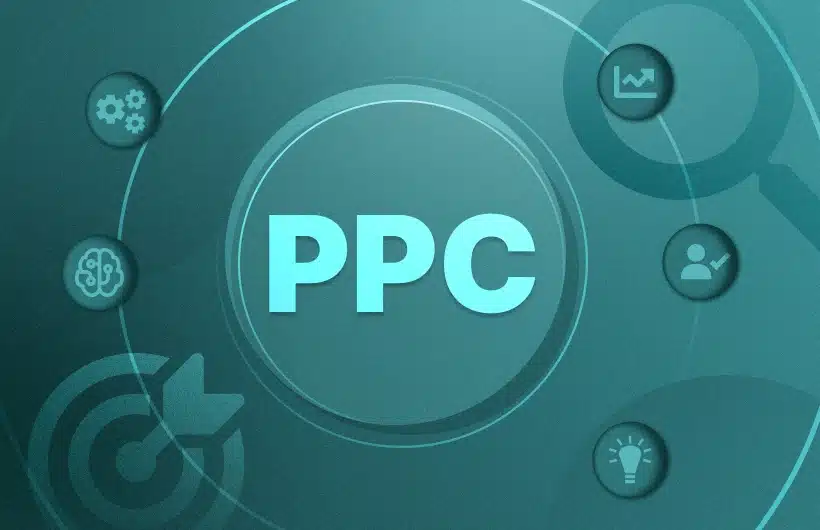Today, it is well-known that PPC opportunities are quite extensive. For e-commerce, this means only one thing – great opportunities both for increasing online sales and for expanding customer reach. However, turning a visitor into a potential buyer occurs precisely through a high-quality, structured, relevant advertisement that must be composed, launched, and configured according to all the rules and conditions of working with such a marketing online channel.
Undoubtedly, turning to a PPC agency is an inevitable action for everyone who wants to get targeted traffic, high conversion rates, decent and global reach, and simply a lot of new audiences. The fact is that advertising campaigns on various websites and search engines are exactly what modern businesses lack, making PPC a relevant solution. Moreover, by turning to specialists, they will definitely be able to help with the setup, development, and launch of advertising, doing this work at a decent level.
Why will PPC advertising still play a key role in brand promotion?
Advertising campaigns are an online channel that can rightly be considered effective. However, working with it can be very challenging. The essence lies in its necessity to gradually or instantly increase the level of online sales. It doesn’t matter what kind of business the advertisement is created for; what matters is that the online channel genuinely works in practice and helps in the e-commerce industry. Speaking of its features, only a few key ones should be highlighted. These include:
- Huge potential of the marketing channel. The tool can undoubtedly be considered both effective and powerful. It allows for a wide audience reach and justifies itself in terms of increasing website conversion rates. However, it is crucial to place advertisements strategically. What does this mean? It’s simple. The advertisement should be relevant and attractive, not repelling. Only then can online visibility be increased, and brand recognition achieved wherever the ad is placed.
- Targeting. It is known that targeted advertising is launched on social networks. But here, we are talking about something slightly different. The vast potential of PPC lies in the fact that ads can be directed at specific consumers. Essentially, the settings always include selection criteria, so clients can be chosen according to their demographic factors and data. Campaigns can also be launched based on audience interests, but it’s essential to consider many small details, such as the ad’s relevance and ensuring that users are genuinely interested (it is better to conduct an analysis first, and then launch the ad block).
- Cost-effective approach. Focusing on the financial aspect, it is important to emphasize that a company or brand owner can set a specific budget and stick to it. This is very convenient, as plans for financial expenses won’t need to be changed over time. However, the specific cost per click should, at the very least, pay off over time. Therefore, it is better to spend a bit more money on creating an ad (then you can be sure the result will be excellent).
- Analytics. Regardless of opinions, monitoring measurable results is the main task of a specialist promoting a business project or the owner if they are setting up and launching PPC themselves. Analytical information can inform about how cost-effective the financial resources spent on the advertising campaign are. You can also understand how much traffic came, how many customers bought the product, and how many people visited and left the brand’s website. Essentially, all measurable metrics and numbers can be reviewed and then thought over to improve your advertisement.
- Success in 100% of cases. Advertisements work. This is evident from how brands become more recognizable and visible on the Internet. The main thing is to “hit the target,” which means achieving high positions in rankings and other important growth indicators. If the advertisement is well-crafted, there won’t be any problems.
If you use all the opportunities of this effective marketing channel for e-commerce, brands and companies have all the chances for success.
What other features of PPC need to be considered?
Not everyone wants to delve into the uniqueness of this technology. Simply put, the key to successful campaigns that feature pay-per-click lies in the business’s understanding of its individual, specific target audience. This audience plays a decisive or key role in conducting a high-quality PPC campaign. Business owners should consider adapting ads to the specific preferences of their audience. Only then will PPC work at a high level.
Naturally, several steps must be taken to achieve this. For instance, considering demographic factors is a must. Such an analysis helps determine gender, affiliation, age category, and income level. This information helps specialists promoting a brand or e-commerce business, or the business owner directly, to create high-quality targeted ads that correspond to specific demographic profiles. Additionally, it is important to consider buyers’ personalities, psychographic segmentation, employ keyword research technology, think over the advertising content (text) and design of the ad, conduct testing, and much more. Only then will the advertisement be highly successful for an e-commerce business.

